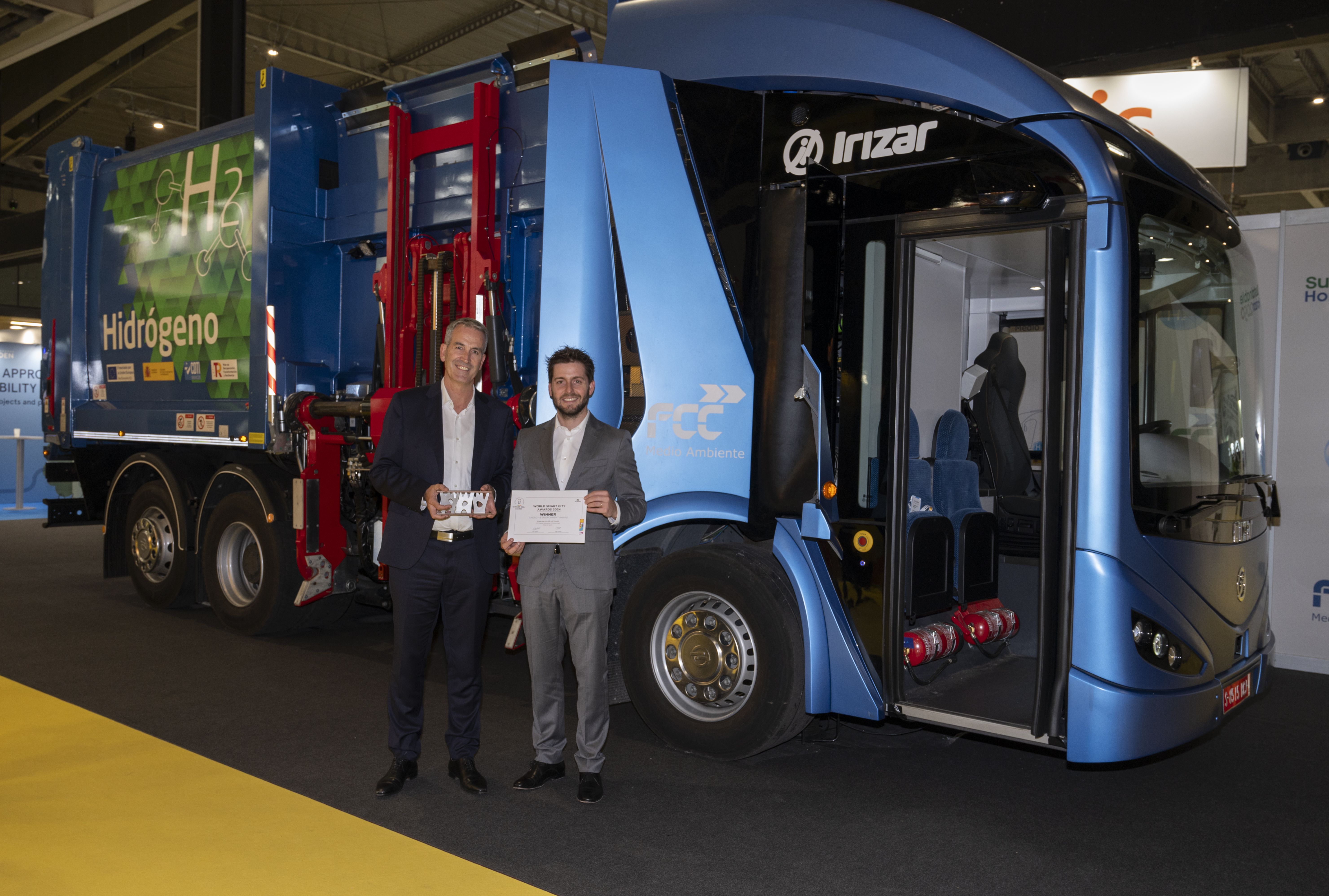The Irizar ietruck hydrogen, winner of the World Smart City Awards
Irizar ietruck hydrogen has won the World Smart City awards in the Urban Energy and Environment category for its ‘Urban-service H2-cell chassis’ project, or ‘Chassis with H2 fuel cell for urban services’ developed together with FCC Environment, within the framework of the Smart City Expo World Congress 2024, recently held in Barcelona.
The innovative equipment consists of a Heavy Vehicle Chassis-Platform for Urban Service Applications powered by a hybrid hydrogen fuel cell and lithium-ion battery system, with a low cab-forward and panoramic cab, which is applicable to all urban service activities. The company has won in competition with several very high-level projects. The award was collected by Íñigo Sanz, CEO of FCC Medio Ambiente, for whom this project is ‘an example of teamwork and of the importance of innovation, which has been in the DNA of this company for over 110 years, in achieving the objectives of our 2050 Sustainability Strategy, a roadmap for business development based on sustainable growth’.
The project, called ‘H2TRUCK’, has been developed by Irizar together with FCC Medio Ambiente. It has received state recognition and support through the Sustainable Automotive Technology Programme (PTAS), within the framework of the subsidies granted by the Centre for the Development of Industrial Technology (CDTI) and supported by the Ministry of Science and Innovation, as part of the Recovery, Transformation and Resilience Plan financed by the European Union.
The first application of the platform has been developed for a collection truck with a state-of-the-art side-loading body. The prototype vehicle is already in operation and has been undergoing working tests for a few months, with an H2 battery that allows the waste collection service to be carried out without polluting emissions.
Josu Letona, head of the Irizar ietruck business, points out that ‘the hydrogen fuel cell will alleviate the main drawback of current pure electric vehicles with intensive work, that is, the balance between autonomy and productivity. In cities with more intensive work in two or three shifts in a row (as is the case in Barcelona, for example), the range and recharging times of pure electric vehicles are a limitation. However, this drawback is solved with the hydrogen fuel cell technology platform we have developed, providing a very good balance between payload, range, vehicle manoeuvrability and recharge times. In short, a significant improvement in the efficiency of heavy municipal equipment is achieved.
The vehicle, whose world premiere took place on 6 November, was on display at the Tomorrow Mobility stand D-185.

